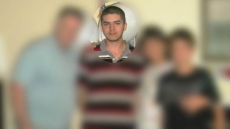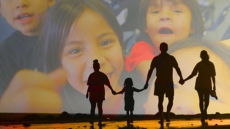MANILA, Philippines — Philippine forces were moving in an effort to rescue two Canadians and a Norwegian after their Muslim militant captors threatened to behead one of them if a huge ransom was not paid by Monday afternoon, officials said.
It now is early Tuesday in the Philippines.
Government forces have not ascertained what happened to the hostages after the deadline set by the Abu Sayyaf militants lapsed, Brig. Gen. Restituto Padilla said, adding intelligence indicated all the captives were well two days ago.
The kidnappers have reportedly demanded 300 million pesos ($6.5 million US) for each of the foreigners, who were seized with a Filipino woman in September last year from a marina on southern Samal Island, sparking a massive search. They earlier demanded a larger ransom.
The hostages were believed to have been taken to Jolo Island in Sulu, a jungled province where the militants are believed to be holding several captives, including 14 Indonesian and four Malaysian crewmen, who were successively abducted at gunpoint from three tugboats starting last month.
"Maximum efforts are being exerted ... to effect the rescue," the military and police said in a joint statement without divulging details of the rescue operation, which was ordered by President Benigno Aquino III.

About 400 Abu Sayyaf militants were involved in the kidnappings, it said.
In militant videos posted online, Canadians John Ridsdel and Robert Hall, Norwegian Kjartan Sekkingstad and Filipino Marites Flor were shown sitting in a clearing with heavily armed militants standing behind them. In some of the videos, a militant aimed a long knife on Ridsdel's neck. Two black flags hang in the backdrop of lush foliage.
The abductions highlight the long-running security problems that have hounded the southern Philippines, a region with bountiful resources but which also suffers from poverty, lawlessness and decades-long Muslim and communist insurgencies.
The Abu Sayyaf started an alarming trend of large-scale abductions after it emerged in the early 1990s as an offshoot of the decades-long separatist rebellion by minority Muslims in the predominantly Roman Catholic nation's south.
It has been weakened by more than a decade of Philippine offensives but has endured largely from huge ransom payments and extortion. The United States and the Philippines have separately blacklisted the group for kidnappings, beheadings and bombings.




